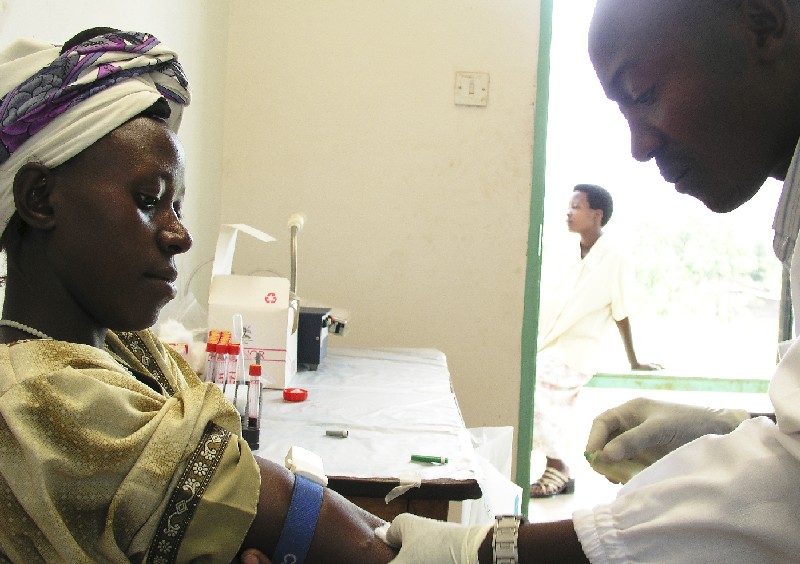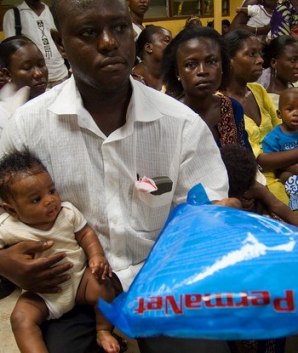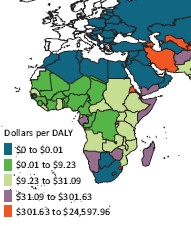 Aids and malaria threaten economic growth © Arne Hoel/World Bank/afrol NewsEconomy - Development | Health | Science - Education Africa receives least health aid
In a 99-page research report released today by the Seattle-based Institute for Health Metrics and Evaluation (IHME), two decades of development assistance for health are thoroughly studied.
"Funding for malaria and tuberculosis also appears to go to countries that do not have large groups at risk for these diseases," the researchers found. "For example, of the 30 countries that receive the most malaria health funding adjusted for disease burden, only three - Eritrea, Săo Tomé and Príncipe, and Swaziland - are located in sub-Saharan Africa, where malaria is most acute." In all of West, Central and East Africa, where malaria is an especially tough burden on public health, development aid funding to fight the parasitic disease is minimal. This includes populous countries such as Nigeria and Cameroon and the entire Sahel (see map). Several African countries with enormous health challenges stand out for receiving very little health aid. Somalia in 2008, for example, only received US$ 2.55 per capita in health aid; Guinea even only US$ 2.36 per capita and Comoros, least of all, only US$ 0.94. Other African countries receiving less than US$ 4 per capita in health aid in 2008 include Cameroon, Chad, Congo Kinshasa (DRC), Madagascar, Nigeria and Sudan. The African country by distance receiving most health aid per capita in 2008 was Botswana (US$ 123), a country investing strongly in fighting its disastrous AIDS pandemic. Botswana is followed by Namibia (US$ 39 in health aid per capita), Zambia (US$ 32), Săo Tomé (US$ 31), Swaziland (US$ 25), Rwanda (US$ 23) and Cape Verde (US$ 20). Both Botswana and Cape Verde are middle-income countries, therefore among the richest in Africa and having relatively well functioning public health facilities. At the same time as foreign funding of health services in developing countries has increased, governments in these developing countries have also increased their health spending. "The commitment to health in the developing world grew dramatically over the past two decades," the study concludes. In sub-Saharan Africa at large, public health spending doubled from 1995 to 2006; in West Africa, it even quadrupled. By staff writers © afrol News - Create an e-mail alert for Africa news - Create an e-mail alert for Economy - Development news - Create an e-mail alert for Health news - Create an e-mail alert for Science - Education news
On the Afrol News front page now
|
front page
| news
| countries
| archive
| currencies
| news alerts login
| about afrol News
| contact
| advertise
| español
©
afrol News.
Reproducing or buying afrol News' articles.
You can contact us at mail@afrol.com









